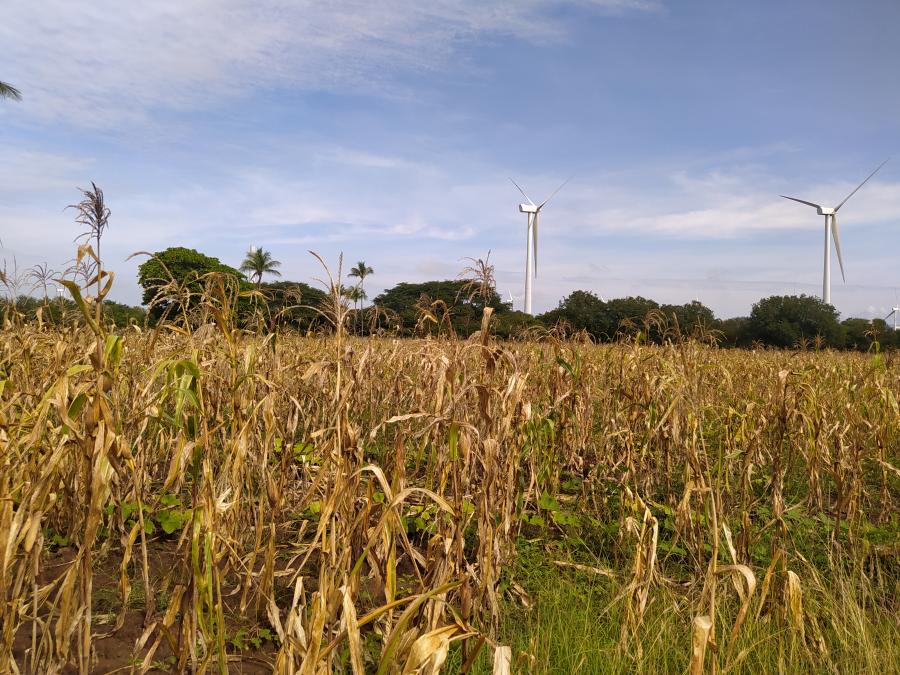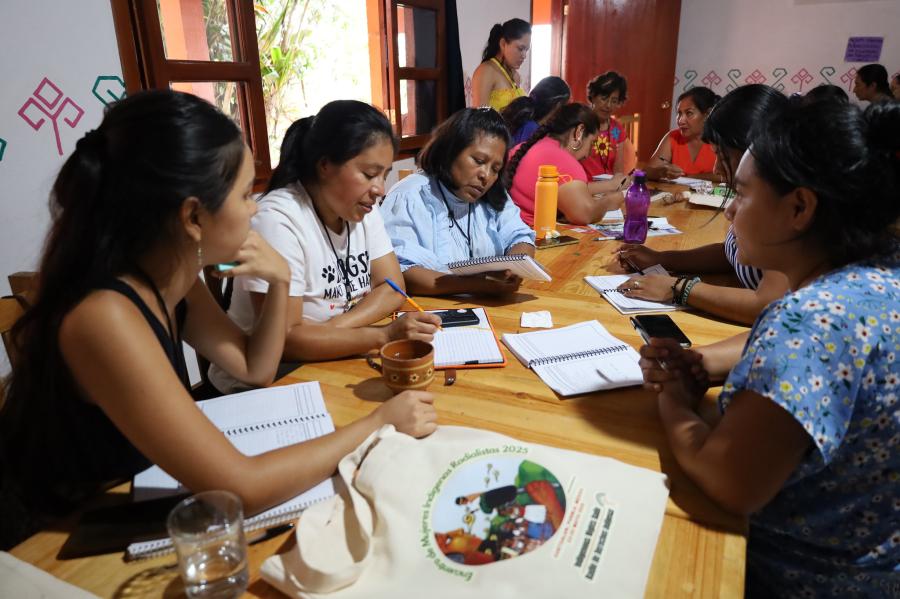Ensure the full recognition of our rights in a Cancun climate decision
8 DECEMBER (Cancun, Mexico) – The Indigenous Peoples’ Network on Climate Change and Sustainable Development (IPCSSD) welcomes the document (FCCC/AWGLCA/2010/CRP.3) which was released today [at UNFCCC COP 16]. We welcome the inclusion of paragraphs 7 and 8 which recognize the need for effective participation of indigenous peoples and fully respect human rights in all climate change related actions. We firmly believe that it is an imperative to adopt the human-rights based approach and ecosystem-based approach to climate change mitigation and adaptation.
We are also encouraged that the texts on REDD (Section C; Paragraphs 65-75 and Annex 11) still retained language on safeguards which:
• recognizes indigenous peoples’ rights and knowledge and notes the adoption of the UN Declaration on the Rights of Indigenous Peoples (UNDRIP);
• affirms the need for full and effective participation of stakeholders, in particular indigenous peoples and local communities;
• stresses that actions are consistent with the conservation of natural forests and biological diversity;
• calls for transparent and effective national forest governance structures.
The REDD Plus text also recognizes the need to address the drivers of deforestation drivers of deforestation, land tenure issues and forest governance issues.
We reiterate that it is important to include clear mechanisms for monitoring and reporting how Parties are complying with the safeguards. We propose that a new sub-paragraph d of para 68 be inserted which says “ A system for monitoring and informing on how the safeguards are being addressed and respected throughout the implementation of activities referred to in Para 67.”
We support the introductory paragraph of Section C that adequate, sustainable and predictable funding for REDD Plus from Developed Countries should be made available. But we want to ensure that funding should not just go to States but also, directly, to indigenous peoples and local communities.
On adaptation, we are against the moves of some Parties to differentiate which of them are most vulnerable to climate change and therefore should receive the greatest part of Adaptation Funds. More focus should be put on vulnerabilities of peoples. Indigenous peoples, whether they are from Small Island States, Least developed countries or middle income countries, all suffer from the adverse impacts of climate change and they should have access to funds, appropriate technologies and technical assistance to allow them to adapt. We support the setting up of the Adaptation Committee and we call on Parties to consider the participation of indigenous peoples in both the Adaptation Committee and the Adaptation Fund Board.
We are concerned the section on Cooperative Sectoral Approaches has no language under the heading. The earlier CRP. 2 had text recognizing the interests of small and marginal farmers, rights of indigenous peoples and traditional knowledge and practices. We appeal to Parties to ensure that this language still remains in the final Cancun Decisions.
As far as the Kyoto Protocol we decry attempts by some Developed Country Parties to kill this or to merge KP into LCA and have one legally binding agreement. We are also alarmed that there is yet no clear commitment for a Second Commitment Period when the first period is ending in 2012. The KP remains the only legally binding agreement that sets targets of industrialized countries to lower their greenhouse gas emissions. Failure to agree on the second commitment period will ensure that industrialized countries, who are the main culprits in climate change, are freed from any legally binding commitments. The danger of business-as-usual for these countries are all but guaranteed once the Kyoto Protocol is killed.
We reiterate our call that indigenous peoples’ participation in all UNFCCC processes and mechanisms at the global, regional and national levels be institutionalized. We recommend that an Indigenous Peoples’ Advisory Group be established which can provide advice to the UNFCCC.
Indigenous peoples are not only vulnerable to climate change impacts, they also provide long-lasting solutions to climate change as long as their rights to their lands, resources and territories are secured, their right have their free, prior and informed consent is respected and financial, technological and technical support are provided to them.
-END-
*About the organizers:
Tebtebba (Indigenous Peoples’ International Centre for Policy Research and Education) is a global indigenous organization based in the Philippines, working for the recognition, respect and fulfillment of indigenous peoples’ rights. It partners with indigenous organizations in building capacities of indigenous organizations and communities to effectively influence policies and programmes on climate change in global, national and local levels.
The IPCCSD is a global network of indigenous organizations coming from Latin America, Asia, Pacific, Arctic that have on-the-ground work related to climate change and climate-sensitive development. It works to ensure that the local initiatives, perspectives and demands of indigenous peoples and communities are surfaced and given priority in various arenas such as the UNFCCC and in regional and national spaces such as in national bodies on climate change and REDD+, among others.
Contacts: Raymond de Chavez: raymond@tebtebba.org and Veronica Vargas: prensa@chirapaq.org.pe



